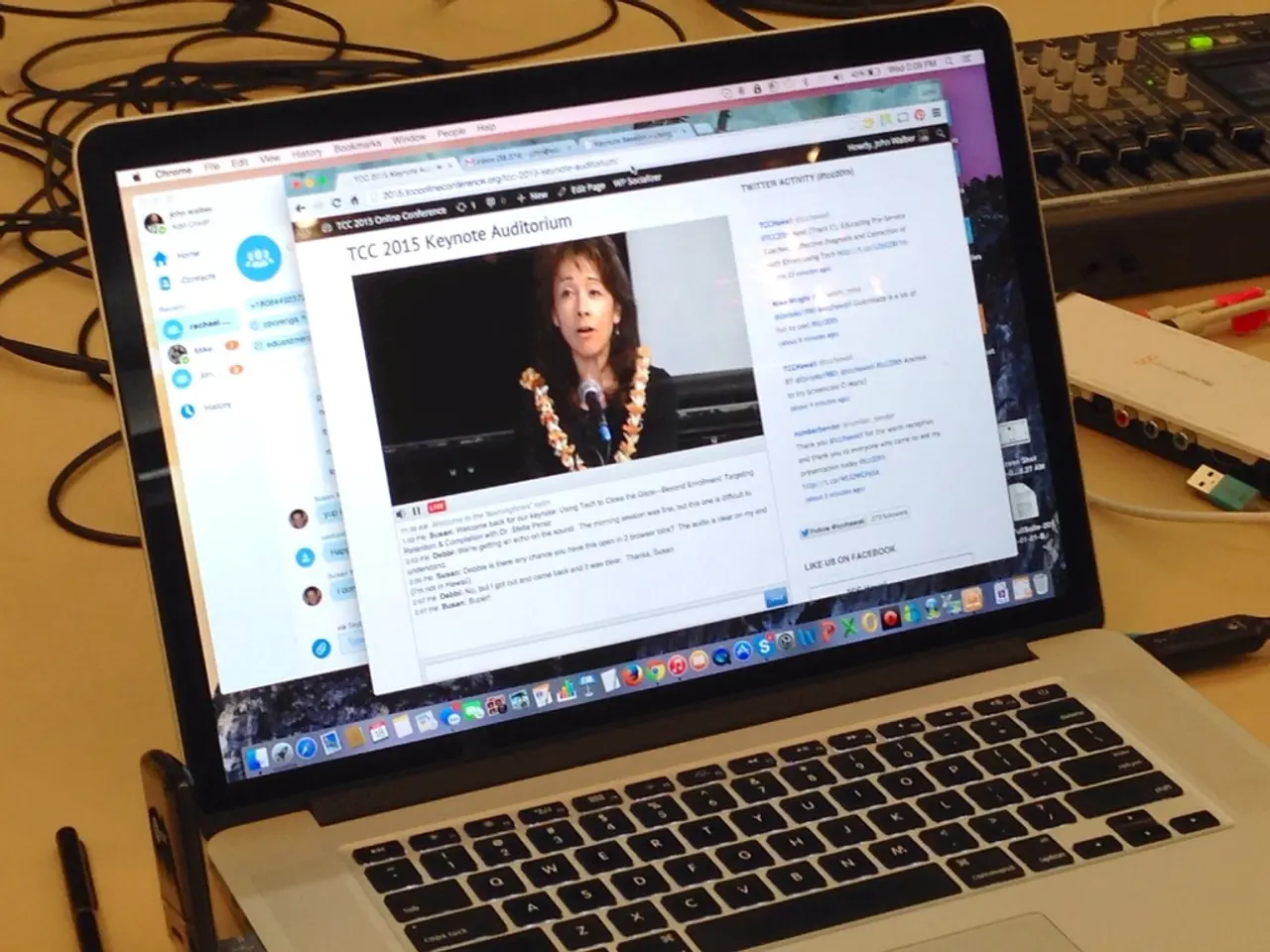In the era of automation and AI, a significant issue surfaces: is the fixation on growth leading to the neglect of users?
In the ever-evolving world of marketing, the future lies in understanding and catering to the user. The brands that truly transcend are those that listen best, a notion that is increasingly prevalent in various industries, including Latin America [1].
Today, a real marketer must possess a diverse skill set, encompassing data science, programming, managing global budgets, and understanding regulations for billing campaigns in different countries [2]. However, active listening seems to have diminished in marketing practices, a gap that some innovative initiatives are filling with great success.
Two such examples are Slack and Capital One, brands that prioritize user experience (UX) over pure growth metrics. Slack has focused on solving genuine user problems related to communication and workflow efficiency [3]. Its UX strategy includes iterative innovation grounded in strong user feedback loops, frictionless onboarding, strategic integrations with third-party apps, customization options, and investments in intuitive search and navigation.
Capital One, on the other hand, concentrates heavily on user-centric and personalized digital financial services. Its success is fueled by a robust, scalable design system, a design philosophy emphasizing innovation, simplicity, trust, and accessibility, and the provision of intuitive tools to manage finances easily.
By anchoring every design decision in customer needs and delivering reliable, easy-to-use services, both brands have fostered strong customer satisfaction and loyalty. These examples underscore that prioritizing user benefits, satisfaction, and emotional connection over short-term growth metrics builds long-term success [3].
In summary, sustained business growth can be a byproduct of prioritizing exceptional user experience, achieved through continuous user-centered refinement rather than aggressive growth hacking. The focus should be on expanding shared value, not just market share or likes. Growth should not be pursued at any cost, and it's essential to consider the cost of optimizing without listening [4].
| Brand | Focus Area | Key UX strategies | Success Factors | |------------|---------------------------------|---------------------------------------------------------|-----------------------------------------| | Slack | Communication & workflow tools | User feedback loops, frictionless onboarding, integrations, customization, search/navigation | User problem solving, seamless onboarding, intuitive features | | Capital One| Digital financial services | Scalable design system, simplicity, trust, accessibility, consistent interfaces | Customer-centric design promoting trust and ease of use |
It's worth noting that the "grow or die" culture is causing a lack of empathy, context, and focus on the user in marketing. Over the past eight years, the author has been part of training programs in various institutions that aim to professionalize marketing, yet growth has often been prioritized over the user [5].
In the wellness industry, content optimized for interaction can promote unreal beauty standards. Many brands prioritize visibility over value and utility, a trend that overlooks something basic: understanding who we serve [6]. Some startups prioritize better retention over rapid growth, a strategy that could potentially shift the focus back to the user.
There is a related article titled "The new role of marketing under budget constraints: From efficiency to intelligence." As we move forward, it's crucial to remember that marketing is not just about growth, but about creating value for the user and fostering long-term relationships.
References: [1] Latin America's New Marketing: Prioritizing Relationships Over Scale. (n.d.). Retrieved from https://www.forbes.com/sites/forbesagencycouncil/2021/03/23/latin-america-s-new-marketing-prioritizing-relationships-over-scale/?sh=672a44982c1d [2] The Skills Every Marketer Needs in 2021. (2021, January 28). Retrieved from https://www.forbes.com/sites/forbesagencycouncil/2021/01/28/the-skills-every-marketer-needs-in-2021/?sh=536454e6614f [3] How Prioritizing User Experience Leads to Long-Term Success. (n.d.). Retrieved from https://www.forbes.com/sites/forbesagencycouncil/2021/03/29/how-prioritizing-user-experience-leads-to-long-term-success/?sh=5116d92776d5 [4] The New Role of Marketing Under Budget Constraints: From Efficiency to Intelligence. (n.d.). Retrieved from https://www.forbes.com/sites/forbesagencycouncil/2021/03/30/the-new-role-of-marketing-under-budget-constraints-from-efficiency-to-intelligence/?sh=53f7e768763f [5] Growth Over User Experience: The Unintended Consequences of Prioritizing Growth. (n.d.). Retrieved from https://www.forbes.com/sites/forbesagencycouncil/2021/03/31/growth-over-user-experience-the-unintended-consequences-of-prioritizing-growth/?sh=6d7c56617a89 [6] The Wellness Industry's Obsession with Interaction: Promoting Unrealistic Beauty Standards. (n.d.). Retrieved from https://www.forbes.com/sites/forbesagencycouncil/2021/04/01/the-wellness-industry-s-obsession-with-interaction-promoting-unrealistic-beauty-standards/?sh=588e0784781f
A start-up's focus on better retention rather than rapid growth could help refocus the marketing industry on the user. In the world of finance, Capital One's success is attributed to its user-centric and personalized digital services, which prioritize ease of use and trust.




